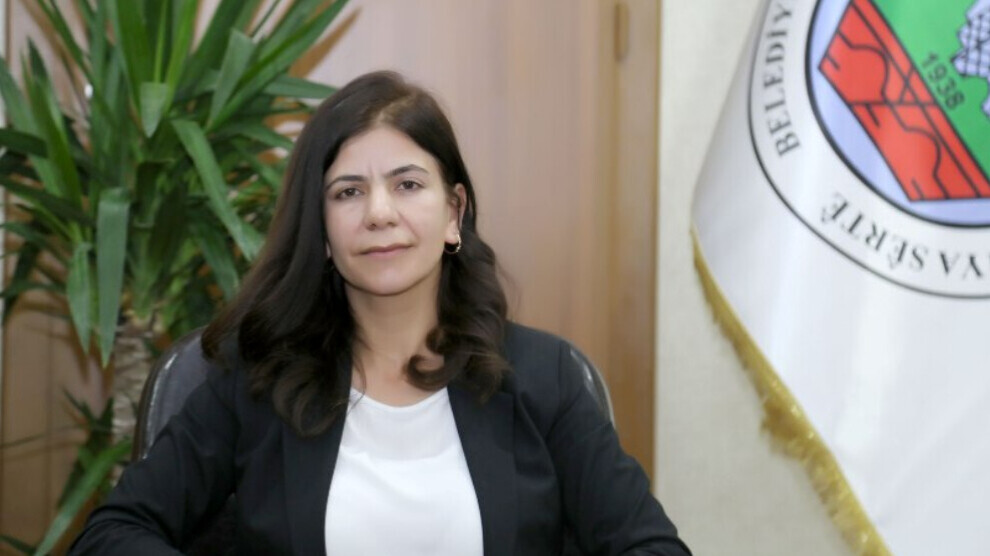House arrest has been implemented as a form of pre-trial detention in Turkey for years. By delaying the proceedings for a long time, this method becomes a permanent punitive measure. House arrest became publicly known at the beginning of the year as a sanction against activists from Boğaziçi University.
The measure is also being used increasingly against HDP politicians and journalists. One of these politicians is the co-mayor of the northern Kurdish provincial capital Siirt, Berivan Helen Işık. Even her lawyers do not know why she was placed under house arrest. The appeals that legal counsel lodges every month also remain inconclusive. Two months ago, the lawyers turned to the Constitutional Court.
"Apparently they don't even know what they're accusing us of"
Lawyer Şakır Demir said about the proceedings: “Because house arrest does not count as imprisonment, the public prosecutor's office is not hurrying to prepare the indictment.” Işık herself sees the procedure as a political attack and said: “The authorities want to prevent us from joining them to make politics for the people and the HDP grassroots. This treatment is completely illegal. Usually it is like this: Crimes are determined and punished legally. If you are legally convicted, you serve your time. But in my case there is no such thing. I don't know what I've been accused of for more than a year. Obviously, not even the authorities know what I'm being accused of."
Işık described her everyday life under house arrest as very limited. Her activities are limited to doing homework, following what was going on, reading books, or watching movies when she could. “You are locked between four walls. In contrast to the prison, it is possible to receive visitors. But attending funerals, and there have been quite a few in the past few months, have not been possible because the dead were not considered close relatives.
Difficulties in accessing medical care
Medical care is also a problem. “To get to a hospital, you have to contact the authorities in Ankara or in the city. Only when they give permission can I go to treatment. We have to state in the application when we enter and leave the hospital."
Population is angry
Işık says that it's not just her own constituents who are angry about these measures. “This is because the people know that we are not stealing, we are not corrupt. We performed all services in a very transparent communal approach. People saw that from the day we were elected until we were placed under house arrest, services were being delivered in very good ways. Even those who did not vote for us know that the state-appointed trustee is the result of a political decision. Trustees are not well received by the people."
"Our hope is even greater"
The local politician continued: “We can see that the state investments are in the building of prisons, that is, investments in the oppression of society. This policy aims at silencing and intimidating the voice of society through repression. They try to create the feeling that anyone they consider an opposition politician's home can be turned into a prison. We are punished for not thinking like them, for not following their will, and freely expressing our ideas. But they should also know that the more pressure that is built, the louder our voice becomes. Our hope is much greater and continues to grow."
Secret file for 14 months
Lawyer Şakır Demir said that the investigation file has been kept secret for more than 14 months. The files have been merged with many other proceedings. Therefore, there are many defendants in the process. The lawyer explained: “Prosecutors cannot come out with anything. We object to house arrest every month. Most recently we took the whole thing to the Constitutional Court, but got no answer from there."
Three co-mayors have been under house arrest for 15 months as part of this procedure, with no indictment at all.
Demir said: "Because house arrest does not count as detention, prosecutors are not rushing to prepare the indictment. Now courts are closed for holidays. The situation will likely clear up in September or October. But since the prosecutors have changed so often in the process, the process is not progressing."
House arrest is increasing
Against the background of overcrowding in prisons, house arrest has increased, particularly to target HDP politicians. The lawyer continued: “There are no specific allegations against our clients: membership of a terrorist organization or anything else with which they could be kept under house arrest. Interviews with Stêrk TV, JinNews and other agencies as well as posts in social media are used as an opportunity to accuse them. And then there is the almost funny thing: the co-mayor is accused of having 'hired almost 89 people close to a terrorist organization', but the fact is that 79 of these 89 people continue to work for the administrator."














